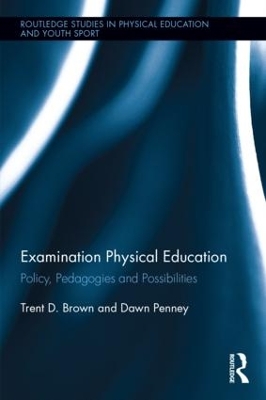Routledge Studies in Physical Education and Youth Sport
2 total works
In recent decades physical education has moved from the margins, redefining itself as an academic subject. An important component of this transformation has been the introduction of high-stakes examinations at key points in a student's school career and the emergence of 'examination physical education' as the dominant paradigm in many educational systems around the world.
This book is the first to explore the growing international literature on examination physical education and draw on research to extend the political, academic and professional debates around the subject to explore its limitations and possibilities. Addressing key topics such as curriculum development, assessment methods, and teacher education, it seeks to assess how our existing knowledge of examination physical education can be best translated into pedagogical practice in the classroom. Complementing other texts in the Routledge Studies in Physical Education and Youth Sport Series, it makes an original and informed contribution to current discussions of physical education.
Examination Physical Education: Policy, Practice and Possibilities is important reading for any student, researcher or teacher educator with an interest in physical education, sports pedagogy and education policy.
Assessment has widely been acknowledged as a central element of institutional education, shaping curriculum and pedagogy in powerful ways and representing a critical reference point in political, professional and public debates about educational achievement and policy directions. Within physical education there remains significant debate regarding the subject knowledge, skills and understandings that should be assessed, in what ways and at what points in students' education this should occur.
Divided into three parts, Assessment in Physical Education makes an important contribution to our understanding of the socio-cultural issues associated with assessment in physical education, in terms of its systemic development as well as at the level of pedagogic relations between physical education teachers and their students. It provides readers with an insightful critique and theoretically informed ideas for rethinking assessment policies and practices in physical education.
This book will be of interest to advanced students and researchers in physical education and youth sport studies, as well as those involved in initial teacher education and teacher professional development.

